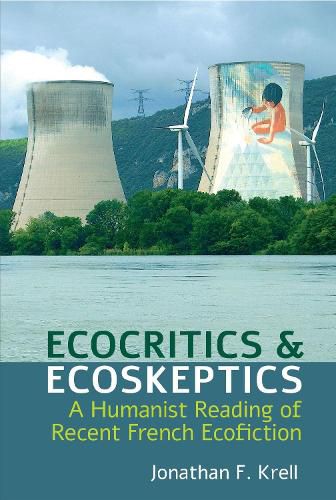Readings Newsletter
Become a Readings Member to make your shopping experience even easier.
Sign in or sign up for free!
You’re not far away from qualifying for FREE standard shipping within Australia
You’ve qualified for FREE standard shipping within Australia
The cart is loading…






In France, the fundamental intellectual debate over ecology might best be summarized by the contrasting views of Michel Serres and Luc Ferry. In The Natural Contract, Serres calls for an end to humans’ war on nature: Our world view must turn from anthropocentric to ecocentric, and our relationship to the earth must become symbiotic instead of parasitic. Luc Ferry’s response to Serres in The New Ecological Order ridicules the metaphor of a natural contract, by which humans (and humanism) would no longer reign over the earth. Ferry accuses Serres and other ecological thinkers of being premodern and prehumanistic ; valuing nonhuman life as much as human life evokes the ridiculous trials of five centuries ago when beetles and rats were threatened with excommunication if they did not cease their antihuman activities.
After analyzing the Serres-Ferry debate, Ecocritics and Ecoskeptics examines environmental themes in novels by Michel Tournier, Stephane Audeguy, and Chantal Chawaf. It then considers the complex and evolving relationship between humans and animals as expressed in novels by Vercors and Olivia Rosenthal, and in philosophical works by Jacques Derrida, Elisabeth de Fontenay, and Peter Singer, among others. Two novels each by the humanist J.-C. Rufin and the humorist Iegor Gran provide a dose of healthy skepticism. Rufin’s stories reveal the potential dark side of extreme environmentalism-authoritarianism and terrorism-while Gran’s hilarious satires critique some environmentalists’ piousness, opportunism, humorlessness, and antihumanism. The book concludes that environmentalism and humanism are not incompatible, if we proceed beyond the traditional humanism of Ferry and other modernists. Essays by philosophers such as Claude Levi-Strauss, Pierre Rabhi, Edgar Morin, and Michel Maffesoli demonstrate that an inclusive, ecological humanism is not only possible but necessary for our survival.
$9.00 standard shipping within Australia
FREE standard shipping within Australia for orders over $100.00
Express & International shipping calculated at checkout
In France, the fundamental intellectual debate over ecology might best be summarized by the contrasting views of Michel Serres and Luc Ferry. In The Natural Contract, Serres calls for an end to humans’ war on nature: Our world view must turn from anthropocentric to ecocentric, and our relationship to the earth must become symbiotic instead of parasitic. Luc Ferry’s response to Serres in The New Ecological Order ridicules the metaphor of a natural contract, by which humans (and humanism) would no longer reign over the earth. Ferry accuses Serres and other ecological thinkers of being premodern and prehumanistic ; valuing nonhuman life as much as human life evokes the ridiculous trials of five centuries ago when beetles and rats were threatened with excommunication if they did not cease their antihuman activities.
After analyzing the Serres-Ferry debate, Ecocritics and Ecoskeptics examines environmental themes in novels by Michel Tournier, Stephane Audeguy, and Chantal Chawaf. It then considers the complex and evolving relationship between humans and animals as expressed in novels by Vercors and Olivia Rosenthal, and in philosophical works by Jacques Derrida, Elisabeth de Fontenay, and Peter Singer, among others. Two novels each by the humanist J.-C. Rufin and the humorist Iegor Gran provide a dose of healthy skepticism. Rufin’s stories reveal the potential dark side of extreme environmentalism-authoritarianism and terrorism-while Gran’s hilarious satires critique some environmentalists’ piousness, opportunism, humorlessness, and antihumanism. The book concludes that environmentalism and humanism are not incompatible, if we proceed beyond the traditional humanism of Ferry and other modernists. Essays by philosophers such as Claude Levi-Strauss, Pierre Rabhi, Edgar Morin, and Michel Maffesoli demonstrate that an inclusive, ecological humanism is not only possible but necessary for our survival.